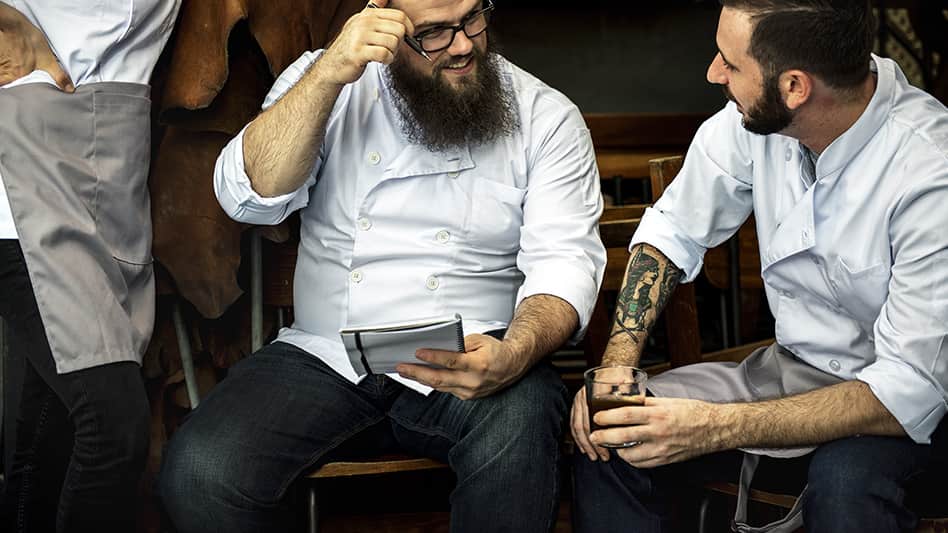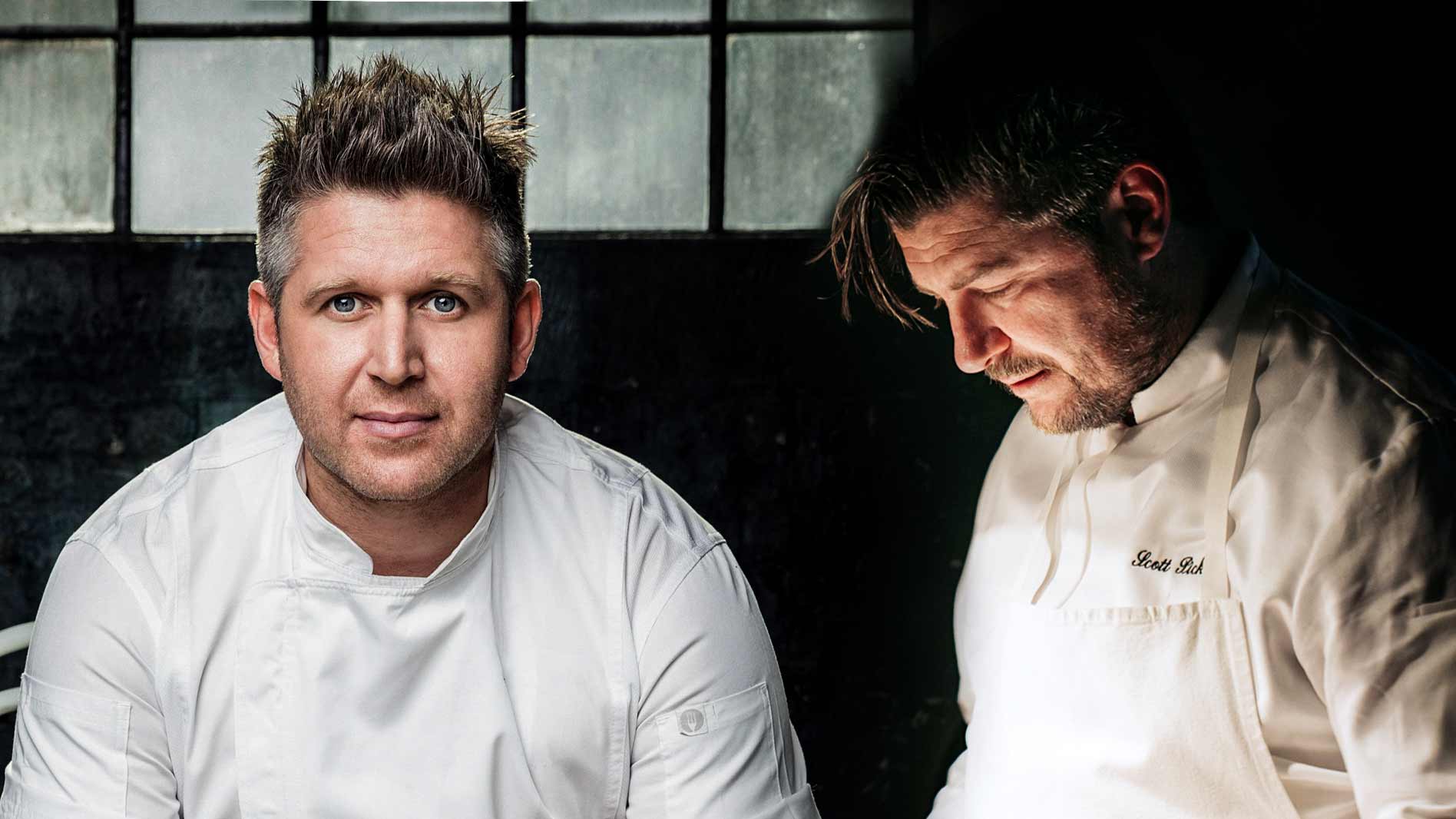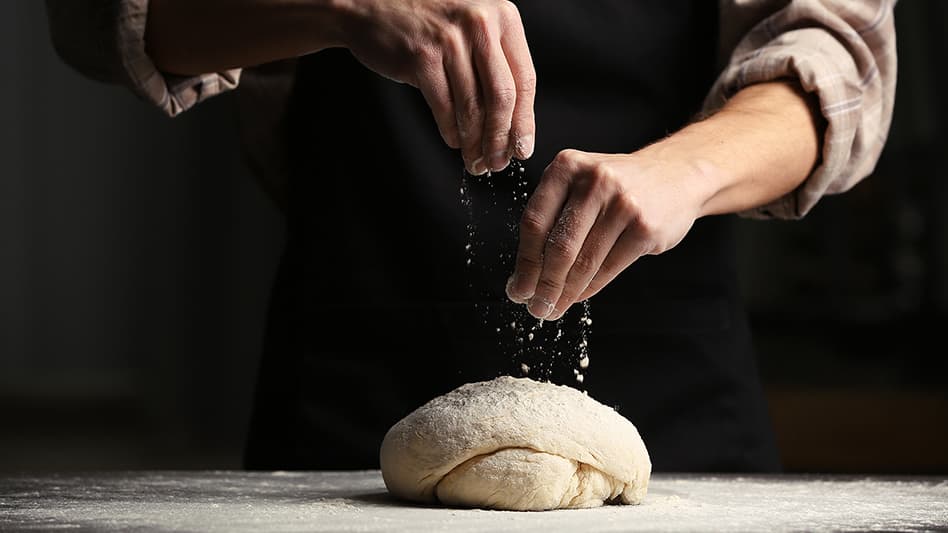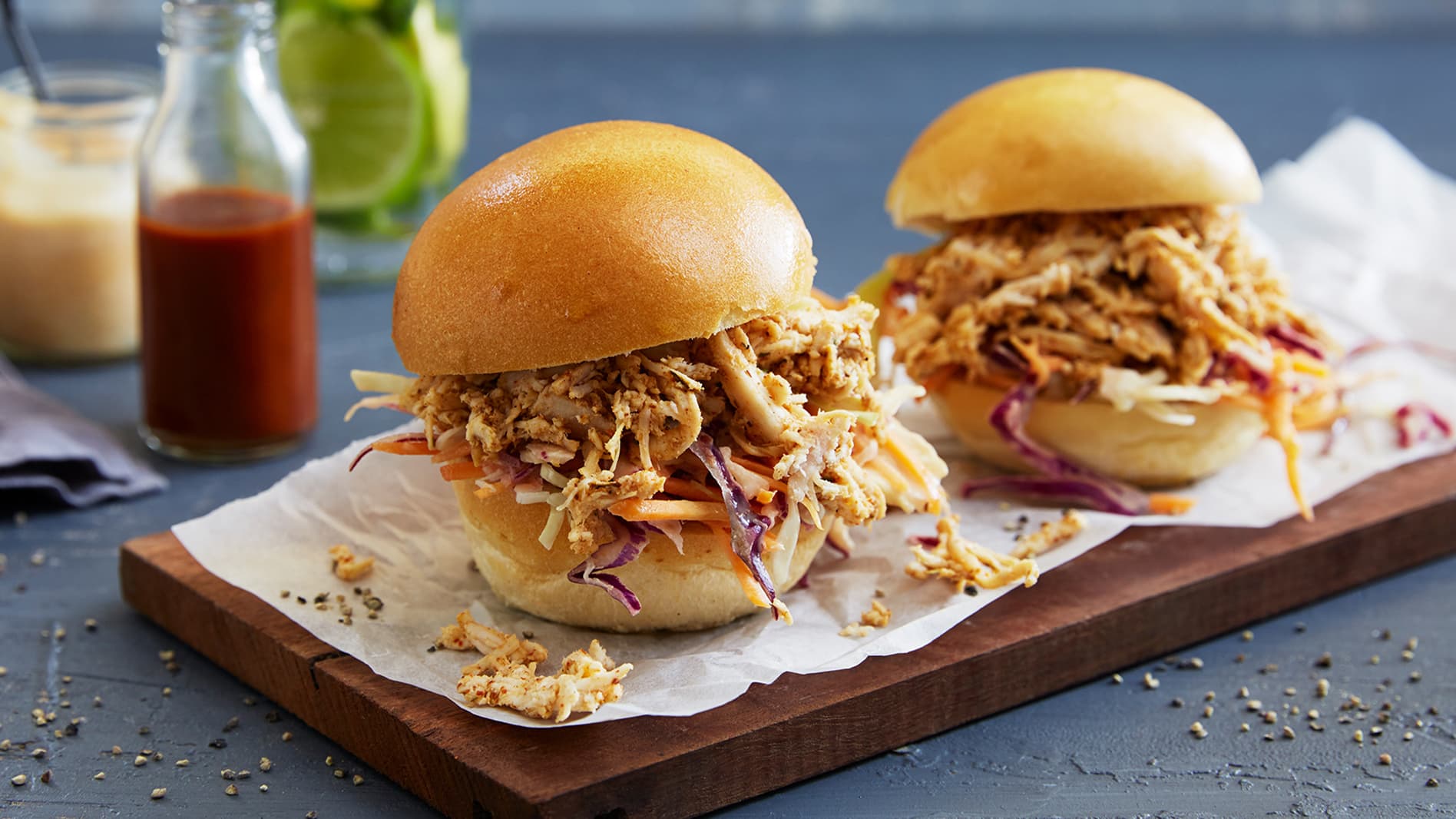Be inspired with recipes created by chefs.
Sign up for updates about products, special offers, news and promotional materials from Goodman Fielder.

Summary
Building a successful commercial kitchen is no sure thing. However, with the right systems in place, success can be a chop, slice, and dice away. Here’s what you need to build the most efficient systems in your venue.
Quick Links
- The Current State of the Hospitality Industry
- The Importance of Systems in the Kitchen
- Conclusion
The Current State Of The Hospitality Industry
It’s no secret the last two years have been a rollercoaster ride for all of us, no matter where in the world you’re located. But as the months continue to flash by, the state of the hospitality industry begins to shift. If the past 24 months have taught us anything, it’s that none of our venues are indestructible.
Since the start of the COVID-19 pandemic, small, medium, and even big businesses like Luke Mangan & Company and Merivale, have had to stand down thousands of staff due to business closures and operational restrictions. But despite there being so many hospitality workers without a job, there were still over 46,000 vacant jobs nationwide, with Seek advertising 8,000 chef positions and a further 14,000 for restaurant and cafe managers.
So, with limited staff on the books, operating hours scaled back and dining capacities (or restrictions depending on your location) in place, how are businesses surviving?
The Importance Of Systems In The Kitchen
Building a successful business looks different to everyone. But one thing that we all have in common is that time is money and cashflow creates success.
To ensure you’re set up for success from the very start, you need to have systems in place. “And that’s like, what is [your] food safety, what are [your] menu and food costs and what are [your] controls?” longtime head chef & hospitality consultant Paul Rifkin told Goodman Fielder Food Service.
But how easy is it to implement systems in the kitchen, especially when help is hard to find? Could it be as simple as implementing new technologies?
The answer is yes. Now more than ever restaurants are relying heavily on technology to ensure kitchens run efficiently all week, month, and year long.
Since the start of the pandemic, technology has advanced at a faster pace than ever before, and it’s changing the way the hospitality industry conducts business…also the expectations of patrons. With the demand for tech in the kitchen, it’s forced businesses to develop more effective approaches and employ new systems and strategies.
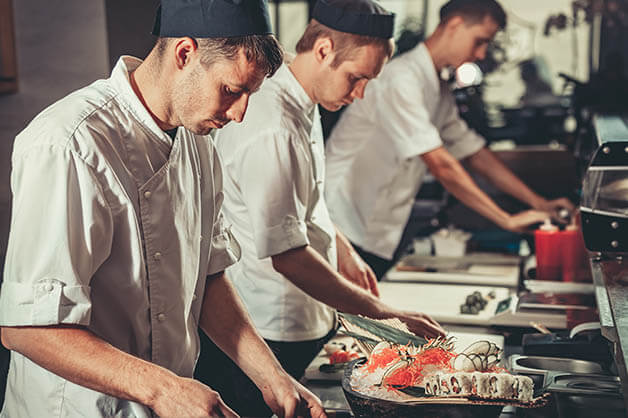
2020 alone saw unprecedented growth in the adoption of digital technologies within the hospitality industry. The most recent Restaurant and Catering report found that the majority of venues in Australia believed technology such as booking systems make the biggest difference to running a business successfully.
While admitting there were “lots of products out there” for venues to use, Chef Rifkin admitted many “put [systems and technology] in the too hard basket,”
“This is because we’re not required to have it…but you’re putting your business at risk of reputational damage if you don’t have a food system in place,” he continued. The now-consultant chef went on to explain that “one of my clients lost $17,000 out of the freezer because they were only coming into the venue two days a week to do office work and no one was checking these things…they didn’t have fridge monitoring. So many places have nothing and a lot of it has been revealed during these lockdowns.”
So, what are the most common systems and technologies found in venues? And how can it help your business succeed?
The Systems You Need In Place
With the backing of solid, fool-proof systems, technology can allow restaurant management to control numbers on multiple levels. Here are the three systems you need in your venue and the technology that will help you succeed.
Point Of Sale System
Point of sale (POS) is one of the most important systems within a venue. It is the foundation of which you’ll manage your operation. A successful POS helps you collect, organise and interpret restaurant numbers between the front and back of house and allows orders to be delivered to the kitchen accurately and quickly. Depending on the POS technology you implement in your kitchen, it can also help you communicate to staff when items are running low or out, prompting them to upsell specials or high margin items.
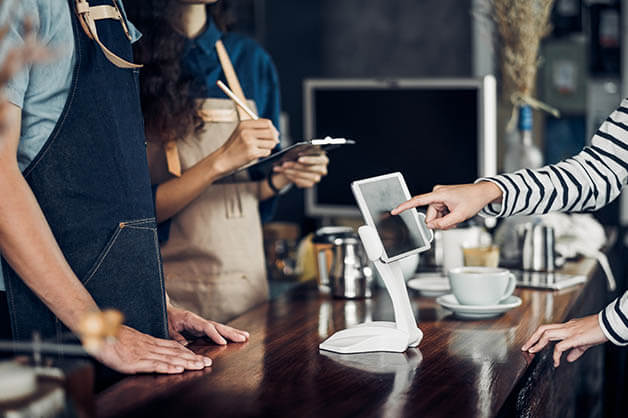
POS Tools
Square is an all-in-one POS system that allows you to:
- Manage your menus with customisable layouts, the ability to swap options live while also tracking item availability.
- Integrate with other technologies, such as delivery platforms, back of house, and employee management technologies.
- Manage orders from one place, track live sales and generate top-line or end-of-day reports.
- Customise your floor plan and track table sitting times with table management capabilities.
- Generate kitchen reports to see top-performing stations and find any potential bottlenecks that may be impacting staff efficiencies.
Impos can help manage all aspects of your business from menu design, price management, and billing solutions. The end-to-end POS solution also allows you to:
- Manage reservations, orders, and menu items.
- Generate real-time dashboards and reports.
- Reward customers with in-built loyalty solutions.
- Monitor and manage stock with digitally built inventory management tools.
Back Of House System
A back of house system, also known as a Kitchen Display System (KDS), is a data management component that can be integrated with a POS system. KDS’ allows you to manage inventory, purchasing, scheduling, and HACCP (food safety compliance), easily and efficiently. Best of all, it can also help you save costs by reducing shrinkage and improving purchasing accuracy with automatic purchasing and reporting with the use of historical data.
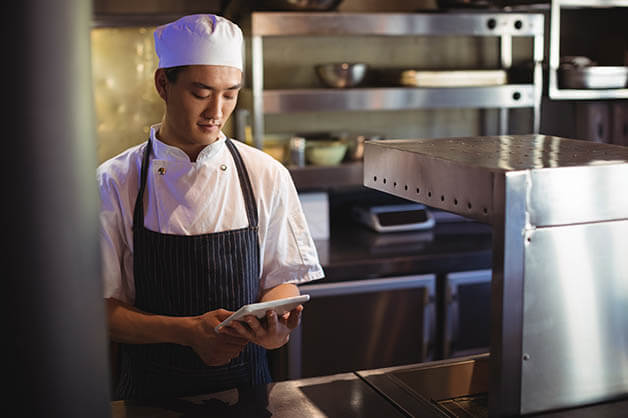
BOH Tools
Toast eliminates paper tickets, manual item counts, and customer order errors. It also allows you to:
- Monitor all incoming and outgoing orders to ensure operations run smoothly.
- Increase speed of prep with station reporting capabilities – increasing efficiencies.
- Centralise inventory, track food waste, control costs, and drive menu profitability with digital inventory management tools.
Oracle optimises your kitchen’s workflow, food quality, and speed of service. It can enhance your overall restaurant experience by:
- Integrating with your POS system to monitor costings, orders, and real-time data.
- Issuing automatic order alerts from front of house to save time and remove any possibility of an order error.
- Using predefined prep and cook timings so you can break down each order and prioritise tasks in the kitchen.
Accounting System
Every business needs an accounting system, this includes restaurants no matter how big or small you are. It helps you manage payroll, build financial reporting with income statements and balance sheets, and develop a thorough understanding of your overall profitability.

Accounting System Tools
Cafe Bookkeepers is an Australian online bookkeeping service specifically built for cafes, restaurants, and bars that manage your venue’s finances. With a team of dedicated accountants behind the scenes, you can:
- Build weekly reports that show how the business is tracking.
- Complete payroll and end-of-year tax statements in an instant.
- Generate customised competitive analysis benchmarks to guide you on how your venue is placed within the industry.
Xero streamlines your business admin by syncing with your point of sale systems to allow you to:
- Track your cash flow and check on your business’s financial health with a customisable dashboard.
- Set up automatic tax, pay, and super calculations and payments.
- Keep track of your inventory while also having the ability to populate invoices and orders.
Additional Tools To Help You Succeed In The Kitchen
While looking after your orders and costing is important, having systems in place to manage your staff is just as critical. Chef Rifkin explained that venues need to put in place systems that “look after their staff because so many [venues] have very little onboarding and even less career path requirements for people and especially the younger ones.”
He explained this was important for venues because young staff “want to know where they’re going”. “They don’t come in to just stay and work, they come in and if they’re not motivated and moving, they just leave,” he added. Here are some options you can implement in your kitchen to help manage your staff (or recruit reliable help when you need it).

Manage Your Rosters And Timesheets With Deputy
Rostering and timesheets are some of the most time-consuming tasks, but with Deputy, you can complete the task in half the time. Deputy is an online system that helps you manage your rosters and timesheets and allows you to swap shifts fast, reducing labour costs.
It also allows you to forecast how many staff you need on hand to meet sales, foot traffic, or delivery orders. Not only does it benefit you, but it also benefits your staff as it allows them to verify when and where they worked (if you have multiple venues), keep track of their shifts, request leave and stay across updates about the business.
Seamlessly Onboard New Staff With Tanda
Onboarding new staff is important but not many of us do it well. In fact, more of us are probably guilty of simply allowing our new staff members to find the ropes of the kitchen themselves.
With Tanda, you can offer your staff a seamless, paperless, effortless onboarding experience. Tanda automates new hire onboarding, lodges details directly with the ATO, and collects super choice forms digitally – meaning you never have to re-enter data again.
To save you even more time in your onboarding process, Tanda automatically verifies your new hire’s tax file number and superfund and ensures you have all the information you need in time for payroll. And in an industry that runs around compliance, the application proactively reminds you if an employee’s license has expired, or they’ve hit their working hours.
The online application allows you to keep track of your employee’s time with your business, track milestones and easily review qualifications. This level of information provides you with the ability to be proactive in enhancing your employee’s career path by then offering further training or certification opportunities.
Recruit New Team Members When You Need Them With “I Need A Chef”
We all know finding chefs during a chef shortage is hard. And with borders shut and international talent locked out of the country, you could say it is near impossible. But not any more thanks to the online chef recruiter, I Need A Chef. Basically, it says everything in its name – I Need A Chef is a recruitment agency that is located across the country in Melbourne, Sydney, Brisbane, and the Gold Coast.
The platform has covered over 650,000 shifts across kitchens in Australia by offering venues temporary, permanent, private chefs, wait and bar staff whenever they need them. But it doesn’t stop there. I Need A Chef also allows you to book chefs of all rankings, as well as catering assistants and kitchen hands. It is a little black book for the hospitality industry, and one many of us will begin to turn to as our kitchen doors begin to open and our bookings start to fill.
Conclusion
Getting your systems in place is an important part of building a successful business, especially in the hospitality industry. So, you must take the time to research the best solutions for your venue and educate your staff (both front of house and back of house) on how to use the technology successfully. But don’t settle on second best, make sure you invest in the right technologies for your kitchen’s needs. Better yet, invest in a one-in-all solution. And remember, with knowledge comes success and with success comes profitability.
Related Ideas
25th March 2023
The Importance of Mentorships in Hospitality
The hospitality industry is changing at a pace we have never seen before. To make these challenging times slightly easier, a greater emphasis needs to be placed on mentoring and training the younger generation of chefs to ensure the future of hospitality is stronger than ever before.
25th November 2022
Mental Health in Hospitality: How One Conversation Can Save a Life
Renowned chefs Scott Pickett and Massimo Mele talk about their own battles with mental illness and why they are now opening up.
9th March 2022
How to Design a Restaurant on a Budget
It’s no secret that opening a restaurant is expensive. But what if you can do it while sticking within your budget?

